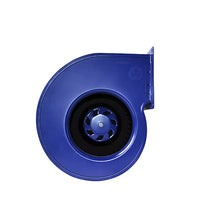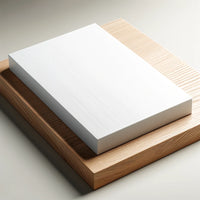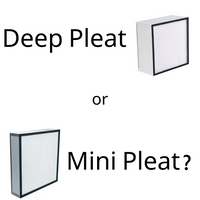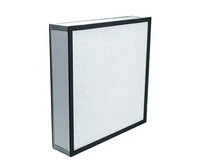In the world of controlled environments and cleanrooms, selecting the right HEPA filter for your laminar flow hood is crucial. Two popular choices are the Deep Pleat H13/14 and Mini-Pleat H13/14 HEPA filters. While both are designed to meet high filtration standards, they come with their own sets of advantages and disadvantages. Let’s dive into a comparison to help you make an informed decision.
Deep Pleat H13/14 HEPA Filters:
Pros:
- Enhanced Durability: The 6-inch depth of Deep Pleat HEPA filters offers a robust construction, potentially leading to a longer lifespan under certain conditions.
- Higher Dust Holding Capacity: Thanks to their depth, these filters can hold more particles before requiring replacement, making them ideal for environments with higher particulate concentrations.
- Potentially Lower Maintenance Frequency: The increased holding capacity might translate to less frequent changes, reducing maintenance efforts over time.
Cons:
- Cost: Deep Pleat filters are generally more expensive than their mini-pleat counterparts, which could be a significant factor for budget-conscious operations.
- Space Requirements: Their larger size might pose installation challenges in more compact laminar flow hoods.
- Airflow Resistance: The depth can sometimes lead to higher resistance, potentially requiring more powerful fans or adjustments to the HVAC system.
Mini-Pleat H13/14 HEPA Filters:
Pros:
- Cost-Effectiveness: Mini-Pleat filters, being thinner and less expensive, provide an economical option without compromising on filtration efficiency.
- Space-Saving Design: The 3-4 inch depth allows for easy integration into a variety of laminar flow hoods, especially where space is at a premium.
- Lower Initial Pressure Drop: The thinner design often results in a lower initial pressure drop, which can be beneficial for systems with limited fan capacity.
Cons:
- Lower Dust Holding Capacity: Due to their reduced depth, these filters may require more frequent replacements in high-particulate environments.
- Potential for Higher Long-Term Costs: The need for more frequent replacements could lead to higher operational costs over time.
Conclusion: The choice between Deep Pleat and Mini-Pleat H13/14 HEPA filters largely depends on your specific needs and constraints. If space and budget are your primary concerns, mini-pleat filters offer an efficient and economical solution. On the other hand, if you’re dealing with environments with higher particle loads and have the space for installation, deep pleat filters might be the way to go, thanks to their durability and lower maintenance needs.
Ultimately, the right filter not only ensures the effectiveness of your laminar flow hood but also contributes to the overall efficiency and cost-effectiveness of your operation. Consider your specific application requirements, and don’t hesitate to reach out for more tailored advice.

 H13 HEPA Filters
H13 HEPA Filters
 H14 HEPA Filters
H14 HEPA Filters
 Blower Fans
Blower Fans
 Tools
Tools
 DIY Flow Hood Kits
DIY Flow Hood Kits





